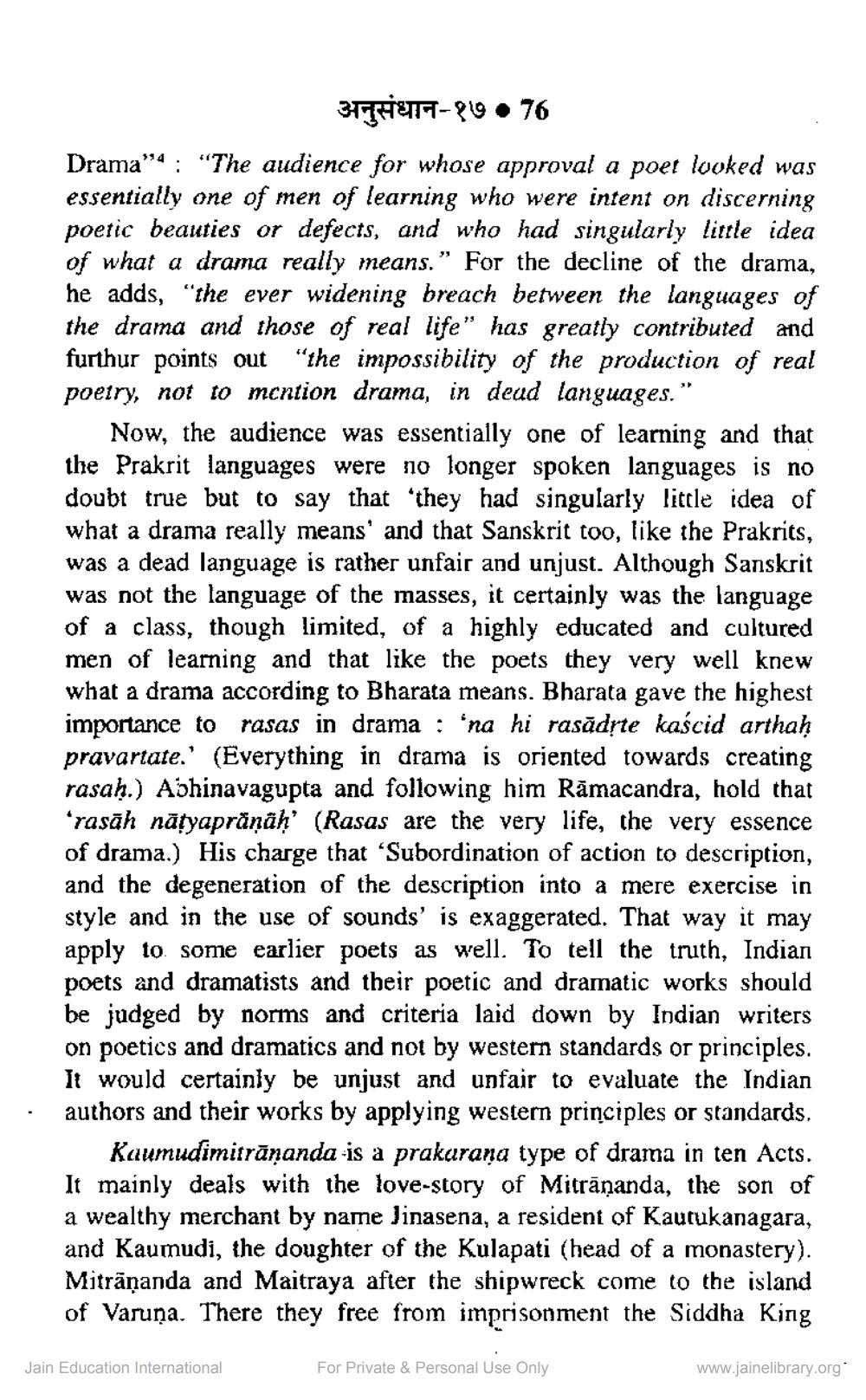Book Title: Some Aspects of Kaumudimitranand Author(s): V M Kulkarni Publisher: ZZ_Anusandhan View full book textPage 2
________________ 311 -819. 76 Drama" : "The audience for whose approval a poet looked was essentially one of men of learning who were intent on discerning poetic beauties or defects, and who had singularly little idea of what a drama really means." For the decline of the drama, he adds, "the ever widening breach between the languages of the drama and those of real life" has greatly contributed and furthur points out "the impossibility of the production of real poetry, not to mention drama, in deud languages." Now, the audience was essentially one of learning and that the Prakrit languages were no longer spoken languages is no doubt true but to say that they had singularly little idea of what a drama really means' and that Sanskrit too, like the Prakrits, was a dead language is rather unfair and unjust. Although Sanskrit was not the language of the masses, it certainly was the language of a class, though limited, of a highly educated and cultured men of learning and that like the poets they very well knew what a drama according to Bharata means. Bharata gave the highest importance to rasas in drama : 'na hi rasādrte kaścid arthah pravartate.' (Everything in drama is oriented towards creating rasah.) Abhinavagupta and following him Rāmacandra, hold that ‘rasāh nātyapråņāḥ (Rasas are the very life, the very essence of drama.) His charge that 'Subordination of action to description, and the degeneration of the description into a mere exercise in style and in the use of sounds' is exaggerated. That way it may apply to some earlier poets as well. To tell the truth, Indian poets and dramatists and their poetic and dramatic works should be judged by norms and criteria laid down by Indian writers on poetics and dramatics and not by western standards or principles. It would certainly be unjust and unfair to evaluate the Indian authors and their works by applying western principles or standards. Kaumudimitrānanda -is a prakarana type of drama in ten Acts. It mainly deals with the love-story of Mitrānanda, the son of a wealthy merchant by name Jinasena, a resident of Kautukanagara, and Kaumudi, the doughter of the Kulapati (head of a monastery). Mitrāņanda and Maitraya after the shipwreck come to the island of Varuna. There they free from imprisonment the Siddha King Jain Education International For Private & Personal Use Only www.jainelibrary.orgPage Navigation
1 2 3 4 5 6 7 8 9 10 11 12 13 14 15 16 17 18 19
